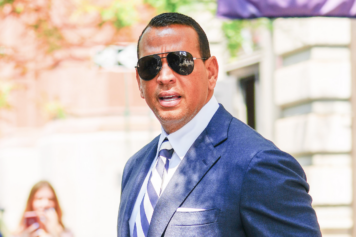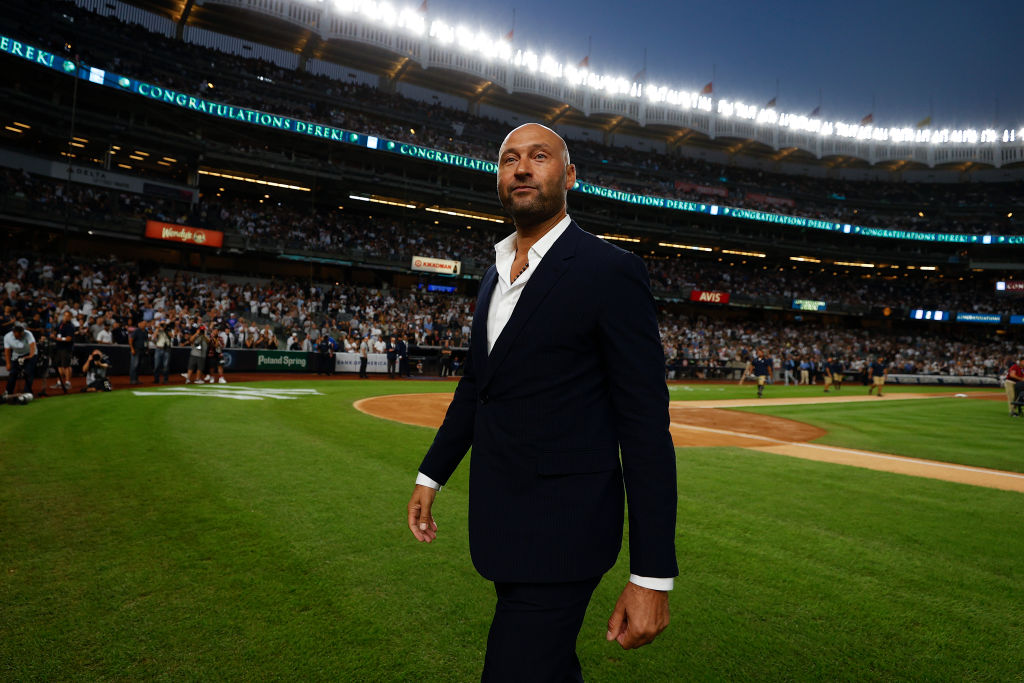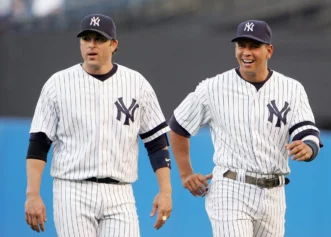Rob Manfred fit the silver slipper.
Manfred, who joined Major League Baseball in 1998, was named its 10th Commissioner, taking over for Bud Selig, arguably baseball’s most transformative boss. Selig served since 1992, when he first was acting commissioner and was named official commissioner in 1998.
Selig, now 80 years old, is a titan. Baseball is equally rosy and stench-filled with the various scents of his handprints. At times, he was the puppet master imposing his will on owners, players and the baseball world to the point of convincing the masses that baseball couldn’t survive without him.
In his absence, we will more clearly see if Selig's impact, intelligence and divine guidance was an optical illusion or if he really was the greatest commissioner of all time as some baseball historians proclaim.
Manfred, Selig's Deputy dawg, beat out a list of prestigious candidates, but he’s a guy that is well-known throughout baseball’s underworld, inner circles and league offices. In fact, he’s been a pivotal player in the success of the second half of Bud Selig’s tenure, which should give him some credibility with the MLB owners who adore Selig because he is one of them, having owned the Milwaukee Brewers prior to becoming commissioner.
The other two finalists were Tim Brosnan and Tom Werener. Brosnan, the league’s top business executive, withdrew from the process before voting began and Werener, an owner of the Boston Red Sox, just didn’t make the cut. Some owners, led by Chi-Town White Sox kingpin Jerry Reinsdorf venomously fought for Werner, making it the first contested appointment in 46 years and delaying the announcement a few hours. The 55-year-old Manfred, however, was always Selig’s first choice to assume one of the most powerful jobs in sports.
It's a generational twist similar to the NBA's tabbing 51-year-old Adam Silver to replace the irreplaceable 71-year-old icon David Stern. Silver was also Stern's top choice. Eventually the Manfred opponents fell in line. You don't go against The Godfather's choice of predecessor.
“While Rob may not have been my initial choice for commissioner, the conclusion of a very good process was to name Rob as the person best positioned to help baseball endure and grow even stronger for the next generation of fans,” Reinsdorf said in a statement.
Under Selig’s watch, Major League Baseball has flourished with a 400 percent increase in revenue. It’s a booming enterprise that brings in $8 billion in annual revenue. The league and its players union have also enjoyed an unusually long period of labor peace in recent years and avoided the crippling work stoppages that marred the 70’s, 80’s and 90’s. Manfred’s ability to keep it cool between the owners and players as an executive vice president in charge of labor was the clincher. When there are no strikes, everybody makes money and the fans stay satisfied. Manfred also spearheaded the league’s serious efforts to address the PED epidemic by leading a series of agreements with the players union and bolstering baseball’s drug testing program, which led to the suspensions of superstars such as former Boston slugger Manny Ramirez.
In 2012, Manfred played a crucial role in MLB’s decision to file a lawsuit against Biogenesis founder Anthony Bosch, who supplied superstars including Alex Rodriguez with banned substances.
Manfred is as sharp as a Wu Tang sword. He attended Cornell University’s School of Industrial and Labor Relations and then Harvard Law School. At 31, he made partner at the firm Morgan, Lewis & Bockius, and he served as an outside counsel to baseball until he joined the commissioner’s office on a full-time basis.
Whether he has the contortionist abilities and ruthless allegiance to ownership needed to succeed and last as commissioner is yet to be seen. Filling Selig’s lofty loafers will be nearly impossible. Manfred’s main job will be to continue to rake in major gwop for MLB, and hopefully he has Selig’s creativity to do it.
During Selig’s two decades as MLB's King Cop, the steroids and PED explosion, video game offenses and the subsequent lynching of MLB's giants, stole the show.
Selig was criticized for allowing the epidemic to reach such proportions and even turning the other cheek – in essence – encouraging use in its early stages. But when the grits hit the fan, The Mitchell Report, commissioned by Selig, concluded that the MLB commissioners, club officials, the Players Association, and the players all share "to some extent in the responsibility for the steroid era." Unfortunately, the King never punishes himself and the reputations and legacies of some MLB legends were stained forever, while Selig went from fire-starter to superstar sinker.
Selig's list of MLB contributions is lengthy; from navigating us through the 1994 strike to his introduction of the wild card, interleague play, and the merging of the National and American Leagues under the Office of the Commissioner and popping off The World Baseball Classic in 2006.
One of Selig’s major objectives during the last few years of his tenure (besides annual Jackie Robinson Day) has been focusing on ways to increase diversity in baseball and boost the African-American presence in the sport. Selig has gone as far as naming a committee led by former manager Jerry Manuel, tasked with creating ways to increase the pipeline of diverse athletes to baseball, particularly African-Americans. For now, the task force is focusing on several iniatives: expanding MLB's existing urban leagues and academies; improving and modernizing coaching; and more aggressively marketing players.
Manfred would be well advised to stay on this path. In order for baseball to continue to grow, the game must try its best to acquire not only players who can ball, but players who are also considered unbelievable athletes and marketing draws.
The African-American’s tremendous impact on MLB history is irrefutable and if Manfred continues to support organizations such as RBI and other baseball entities that provide free training to kids from underserved communities, he will already be carving out a niche.
Selig has made baseball more money than Branch Rickey could have ever imagined. Now it’s Manfred’s turn to broaden its appeal. If he doesn’t miss the mark and continues to expand baseball's culture, diamond-mining can become all-inclusive again and truly recapture its former title as America’s pastime



